” ‘Appropriating’ seems to have the same stress put on it in relating the individual to the world through the ownership of property as ‘belief ‘ has in relating the individual to the world through the acquisition and power of knowledge.’” –Stanley Cavell, Disowning Knowledge: In Seven Plays of Shakespeare.
I didn’t like the way Bible study was going. I could tell others didn’t either. The scriptures were at a distance. I had this uneasy sense that our entire group was trying to interpret and then apply the scriptures, which is a tacit admission that the scriptures are purely historical. It is also a subtle denial of the third person of the Trinity, the Holy Spirit. Knowledge of scripture became possessive. If we could possess enough knowledge about the historical context, the use of grammar, the author, and the audience; then we could really know what the scripture passage meant. It’s the curse of modern epistemology and the obsession with private property. It also makes scripture something other than scripture. When we own or possess the scriptures, we can use them to tell others about what the Bible means. In this mode, scripture compels us to see Christianity as an ethics, full of lots of shoulds and oughts. Which makes it not scripture. For the words to be the Word, it must reveal. For scripture to be scripture it must reveal the Word of God, the second person of the Trinity, Jesus Christ.
I’m not sure if it can adequately be described as a paradox or not. The sense I get is that when the Bible is at a distance, as I say above, it is something to possess, and possession is a denial of intimacy. Yet, when something is intimately related to you, when something is intertwined into your being, you feel no need to possess it. It is part of who you are. It moves as you move, it is identity forming, and instead of you interpreting it; it interprets you. A proper knowledge of scripture is not a possession of facts and information about the scriptures. It is indwelling, habit forming, and discipleship producing.
So, we set off with ambitious goals. How could we do Bible study every week with this in mind? We found the answer in questioning. Maybe not the questioning we are used to in modernity. I don’t mean doubting, which is reductive. I mean questioning, which is expansive. We have two rules. 1. Begin every question with I wonder. 2. Don’t try to answer anybody’s question, wonder with them.
What follows is what we learned, authored by two of our young adult members who wondered in the Book of Revelation.
Hunter Ricks
“And I heard a voice in the midst of the four beasts. And I looked, and behold a pale horse. And His name that sat on him was death, and hell followed with him.” — Johnny Cash
 Revelation for me, before our study, was centered on this verse from Johnny Cash (or is it from Revelations 6:7-8) and the damnation and destruction that the Four Horsemen of the Apocalypse would bring. The rapture would occur of course and all “good” Christians would escape this new hellscape that the human race had brought upon itself and the rest of the world, but mainly Revelations was about destruction.
Revelation for me, before our study, was centered on this verse from Johnny Cash (or is it from Revelations 6:7-8) and the damnation and destruction that the Four Horsemen of the Apocalypse would bring. The rapture would occur of course and all “good” Christians would escape this new hellscape that the human race had brought upon itself and the rest of the world, but mainly Revelations was about destruction.
Our study each week was a review of two chapters of Revelation. We had a forum of questions where each member could bring their own “wonderings;” what the text meant, what was the context, why were certain words used and more. It was through this study that like Saul, the scales fell from my eyes and I realized Revelation isn’t about destruction but about Salvation. The terrifying images of destruction and wild beasts are easier to comprehend than the pure and holy Salvation that comes through the Grace of God. That if we can envision the awful and evil then just maybe we can start to build an understanding of the incomprehensible, the intangible element that is God’s Grace and Love.
For me Revelation has turned into one of those magic eye paintings, where after staring hard enough, and maybe going a little crossed-eyed, the true image appears from the chaos and becomes imprinted on my mind. I still wonder what the early Christians saw when they heard the story of Revelation. Were they quicker to see Salvation or did fear of damnation weigh on their minds. I wonder if art through the ages has changed the meaning of the text because the description of Evil was easier to draw than the description of Light. I wonder how I will feel and what I will learn in my next study of Revelation. One thing I do not have to wonder about is wanting to study this text with others again. The wisdom and questions of many helped pull away the veils and reveal to me a different truth. Revelations 22:21
Nathan Vercaemert
 This study was my first dive into Revelation. I had read through the book before, but never had I taken any time to study, analyze, and wonder about the passages. In the past, my surface level view of the book was that “it is confusing.” I had always wanted to explore its contents.
This study was my first dive into Revelation. I had read through the book before, but never had I taken any time to study, analyze, and wonder about the passages. In the past, my surface level view of the book was that “it is confusing.” I had always wanted to explore its contents.
The biggest understanding that I found during our study was the relation between Revelation and the non-Christian Romans of the day. While there are so many more layers to the book, I enjoyed learning through our study how much of the book can be safely interpreted as a reaction to the Roman oppression of Christians.
Going forward, I expect that I will always wonder exactly what John was thinking when he wrote some of the chapters of Revelation. It is refreshing how well-versed he was in the Judeo-Christian lingo and ideas, but I can’t help but wonder how he wants us to interpret the passages that imply a works-based salvation.
Ultimately, the “wondering” structure of our Bible study allowed for casual, informative, and invigorating discussion about a book that can be a little disconcerting.
An invitation
If you’d like to join our wondering, give me a call, or send me an email. We meet most Wednesdays at 7:30 pm at the church. We’d love to wonder with you.
In Peace,
Matt Logan

